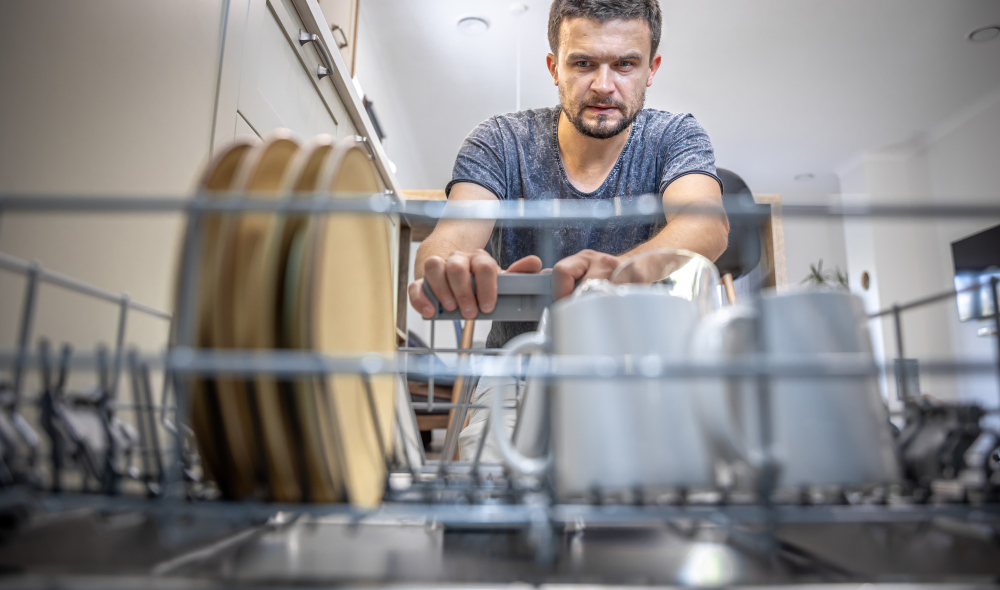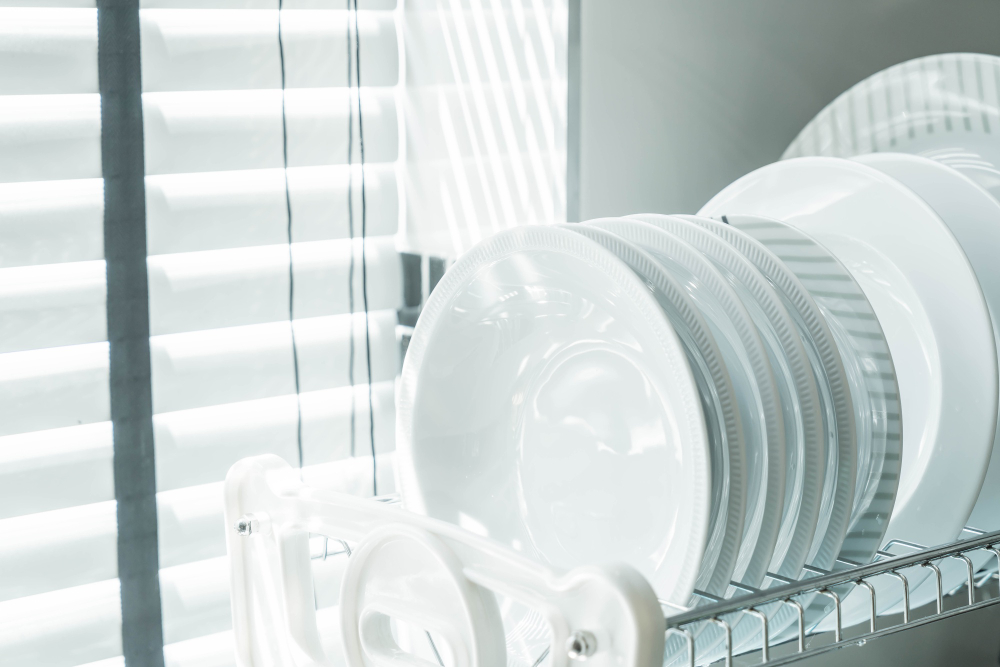Smart Hacks To Keep Your Dishwasher Working Properly
You’re fed up with your dishwasher’s antics, aren’t you? It’s high time you took control.
In this guide, we’ll delve into how your dishwasher works, demonstrate regular cleaning and maintenance, optimize detergent use, and show optimal loading techniques. Plus, we’ll troubleshoot common issues.
You’ll have your dishwasher working like a dream in no time!
Understanding Your Dishwasher’s Mechanics
To keep your dishwasher running smoothly, you’ll first need to understand the basic mechanics of this essential kitchen appliance.
In the ‘Dishwasher Components and Functionality Breakdown’, you’ll realize it’s more than just a metal box with sprayers. It’s a complex machine with various parts working together.
The most critical components are the control mechanism, water inlet valve, pump, and spray arms. The control mechanism orchestrates the cycles, while the water inlet valve regulates water flow. The pump, powered by a motor, forces water into the spray arms, which then spray the dishes.
Understanding these components and their functionality breakdown not only demystifies your dishwasher but also helps you diagnose and rectify common issues.
Regular Cleaning and Maintenance

Every month, you’ll need to give your dishwasher a thorough cleaning to ensure it’s working at its best. It’s not as hard as it might sound, and you don’t need any fancy products.
Your first step is filter replacement. This step is crucial as food particles often get stuck in the filter, affecting the machine’s performance.
After replacing the filter, it’s time for a vinegar rinse. Simply fill a dishwasher-safe bowl with two cups of white vinegar and place it on the upper rack. Run a normal cycle without detergent. The vinegar breaks down grease and washes away stale odors.
Optimizing Detergent Use
After ensuring your dishwasher is clean and well-maintained, the next step is to optimize your detergent use.
It’s crucial to understand detergent types and the importance of measuring accuracy.
Different detergent types, liquid, powder, or single-dose pods, have their unique benefits. While liquid detergents dissolve quickly, powders are less expensive and single-dose pods offer convenience. Choose what works best for your needs.
Measuring accuracy is key. Overloading detergent can leave residues, while too little can result in poorly cleaned dishes. Always follow the manufacturer’s instructions for optimal results.
Remember, using the right detergent type and accurate measurements aren’t just about sparkling dishes. They’re also about extending the lifespan of your dishwasher.
Efficient Loading Techniques
You’re not alone if you think that loading a dishwasher is as simple as cramming in as many dishes as possible; however, an efficient loading technique is vital for your dishwasher’s optimal performance.
Rack arrangement strategies and load balancing tips can make a huge difference. Start by grouping similar items together. Plates go with plates and bowls with bowls. This helps the water spray reach every item effectively.
Next, ensure you’re not overloading. It’s tempting to fill every nook, but overcrowding can lead to poorly cleaned dishes.
Lastly, vary your load between the top and bottom racks to balance the weight and prevent any potential tipping. Remember, a well-loaded dishwasher not only cleans better but also lasts longer.
Troubleshooting Common Issues

Despite following efficient loading techniques, if you still encounter issues with your dishwasher’s performance, it’s time to delve into troubleshooting common problems.
You can start by deciphering error codes. These codes are your dishwasher’s way of communicating what’s wrong. They might seem like random numbers and letters, but they’re not. Each code corresponds to a specific issue – a quick online search can usually tell you what they mean.
Next come DIY fixes. If your dishwasher isn’t draining, for instance, inspect the drain for blockages. Not cleaning properly? Check the spray arms for clogs. It’s crucial to remember safety – if a problem persists or you’re unsure, don’t hesitate to call a professional.
Regular troubleshooting can keep your dishwasher running smoothly.
Frequently Asked Questions
What Are Some Energy-Saving Tips for Using a Dishwasher?
You’re asking about energy-saving tips for using a dishwasher. To boost dishwasher efficiency, run full loads, use eco-friendly practices like air-drying dishes, and select the energy-saving cycle if your machine offers it.
How Often Should I Replace My Dishwasher?
Generally, you’d replace your dishwasher every 7-12 years, depending on its lifespan. However, regular maintenance schedules can extend its life. You’ll know it’s time when repairs cost more than half of a new one.
What Are the Signs That My Dishwasher Needs Professional Repair or Replacement?

If your dishwasher leaks or makes unusual noises, it’s signaling trouble. These signs show it needs professional repair or replacement. Don’t ignore them; get a pro to check it out before it becomes a bigger problem.
Are There Any Smart Devices or Apps That Can Enhance the Performance of My Dishwasher?
Yes, smart devices and apps like ‘Maintenance Reminder Apps’ can boost your dishwasher’s performance. They offer app integration benefits, sending you timely alerts for maintenance, thus prolonging your appliance’s life and efficiency.
How Does the Hardness of My Water Affect the Functioning of My Dishwasher?
Hard water can cause mineral build-up, affecting your dishwasher’s efficiency. You’d benefit from using water softeners or soap alternatives to minimize this effect, keeping your appliance running smoothly and prolonging its life.
Conclusion

So, you’ve got the know-how to keep your dishwasher humming along happily. Remember, understanding its mechanics, sticking to regular cleaning, optimizing detergent use, and nailing efficient loading techniques are key.
And if trouble strikes, don’t fret. With these troubleshooting tips, you’re well-equipped to handle common issues. Keep your dishwasher in tip-top shape and it’ll thank you with cleaner dishes and a longer life.
After all, a happy appliance means a happy home!
